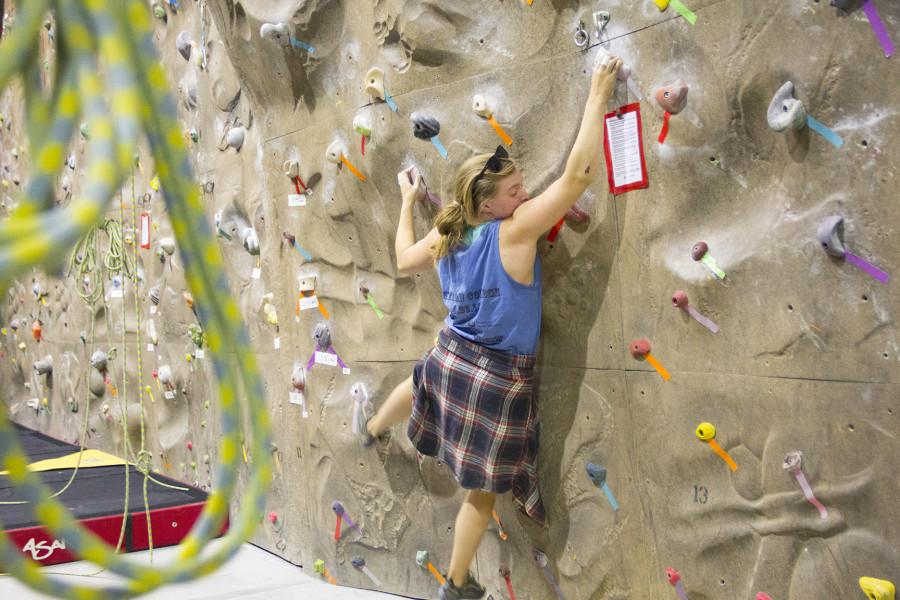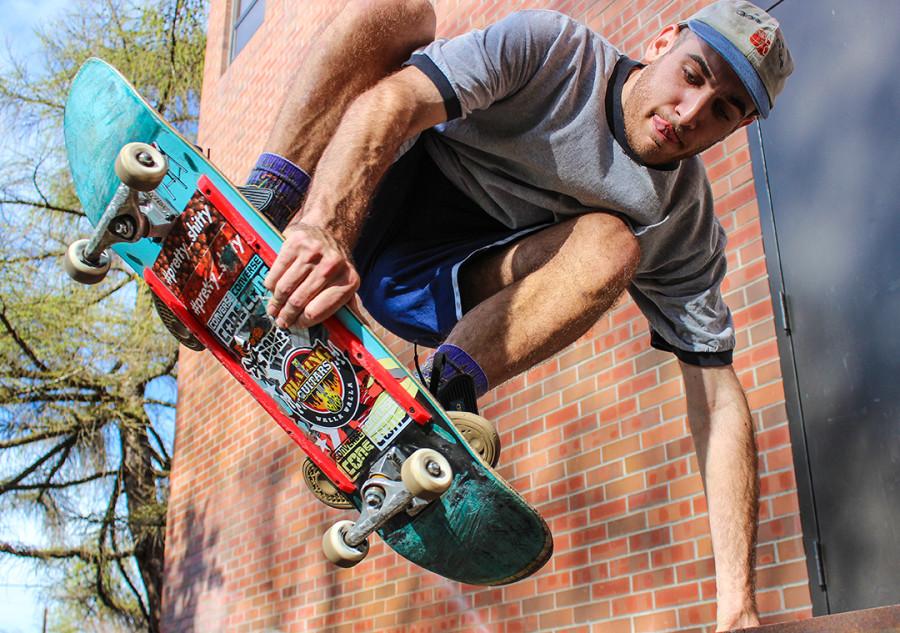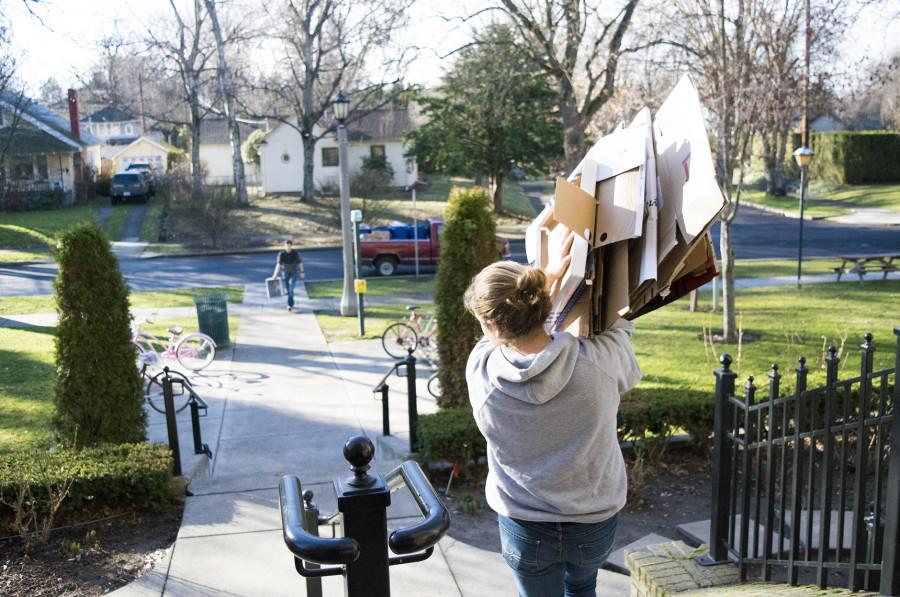Walla Walla University is just a quick car ride from Whitman College, but so many of us seem to be unaware of what the university is really about. Most of us know it is a private university affiliated with the Seventh-day Adventist Church, but what does that mean?
According to the WWU website, one of the university’s most basic goals is creating an environment in which students can understand and further develop their spiritual beliefs by taking religion classes, doing volunteer missions and community service, attending worship services and working in small groups.

Campus Chaplain Paddy McCoy helps students through their personal religious discoveries and in their community outreach projects.
“One of our core elements at the university is that we are committed to faith in God, so part of my job is to provide opportunities for the campus to worship, to connect with God and to challenge them to go deeper into that journey. I’m really there to be a care provider and a teacher,” said McCoy.
Building a personal relationship with God
An important part of students’ personal relationships with their faith is observation of the Sabbath day every Saturday. On the Sabbath, believers are supposed to refrain from all secular work.
“It’s just a way to spend the day differently than we do the other days and kind of [to] unplug from the business of the week and plug in to community, time together, time to worship, time to rest and sleep,” said McCoy.
WWU senior theology major Jesse Churchill explained how he observes the Sabbath in his own way.
“I’ve come to my own view of what the Sabbath is. I believe that there are radically different ways to think about it. You don’t really watch secular TV or listen to secular music. When I thought why that is, I realized that Sabbath is a time not to just keep yourself from doing the things you normally do, but rather a time to focus on God. So I’ve come to the point where I participate because I want to do it, not just because it’s expected of me,” he said.

WWU students are not thinking of their spirituality only on the Sabbath, however. They try to incorporate their faith into everyday life. Part of that project is blending fairly conservative Adventist beliefs with the freedoms available to students in college.
Unlike some college students, senior English major Rachael Coon avoids drugs and alcohol in an effort to keep a close relationship with God. According to her, some WWU students do drink alcohol, but partying is not the norm.
“A lot of the things we put in our body cloud your mind, especially things like smoking or alcohol, and something God has given us is the ability to think and to reason, so when you put things in that hinder that, you’re also hindering a gift God gave you and your ability to listen to God,” she said.
Churchill believes that different generations approach this balance between religion and everyday life in very different ways. He cites feelings about tattoos as an example.
“There are people who have tattoos, but it’s just not really flaunted. There’s a potential for it not being accepted. People my age are usually OK with it. But if you walk into church, there will be older people judging you,” he said.
He said Adventist beliefs could definitely change in the future.
“Church in general is dying. I want to have a church that can actually reach people where they are, here in this culture, rather than try to revert back to the ’60s. The religion of our parents and grandparents tended to accept the beliefs a little more, whereas our generation questions everything,” he said.
Bringing faith into the wider community
WWU students often explore their faith within the community through mission trips. There are opportunities to help out all over the world and here in Walla Walla.
Jeanne Vories, the director of student missions, is in charge of sending students to countries in need. Sometimes they need teachers, and other times they need someone to work in an orphanage or in a medical setting.
While on a mission, students sometimes have to get creative in order to fulfill themselves spiritually.
“Sometimes [the students] might be the church. Sometimes they might have to organize story hours and times where they invite the children, and so there’s often not really church per se for them because they’re it. Either that, or church is in another language. When they’re alone and in another culture, God is their friend,” said Vories.
The students on these missions accomplish a lot while they’re gone, but they also face challenges while abroad.
“Some of them will have reverse culture shock. Some of them go down to Walmart and just cry because there’s so much stuff, and for the last year they were in a place where there just wasn’t anything,” said McCoy.
In spite of this, the students come back to the supportive community at WWU where Vories and McCoy are there to help them readjust. Sharing stories about their mission experiences with friends helps too.
Coon had a great time on her year-long mission trip this past year.
“I took this last year off and I worked in an orphanage in Belize. That was an incredible life experience. Life is raw there. It is what it is. There’s no fluff. There’s no mask to put on,” she said.
Churchill has been on four short mission trips to Mexico, Honduras, Fiji and Mozambique. Each trip was just a few weeks long, but they inspired him to change his major from engineering to theology.
More than a religion
Although being Christian is an important part of the identity of WWU, the students there get a liberal arts education. In other words, the university is not the type of school McCoy called a “bible college,” and students learn much more than religion. In fact, some of the most popular majors are nursing, business and engineering.
Coon talked about the value of the experience students receive at WWU.
“My parents say they’re investing in more than [my] education … in [my] future, spouse, spiritual life, eternity, in a sense. So to them the money is worth it, because they’re looking at a bigger picture, which I think is what a lot of parents do,” she said.
While religion obviously plays a big part in the lives of students like Churchill and Coon, it doesn’t necessarily have to.
“If you’re looking for something else in life not religiously based, you’re going to find it. That’s how it is all around the world,” said Coon.
McCoy aims to help the students get the experience that they want, whatever that may be.
“My hope is that Walla Walla University is a good neighbor not only to the schools, but to our community, and that our students have a positive experience that leads them to go from here to be a change agent in our world,” he said. “And to go in and make a difference.”










